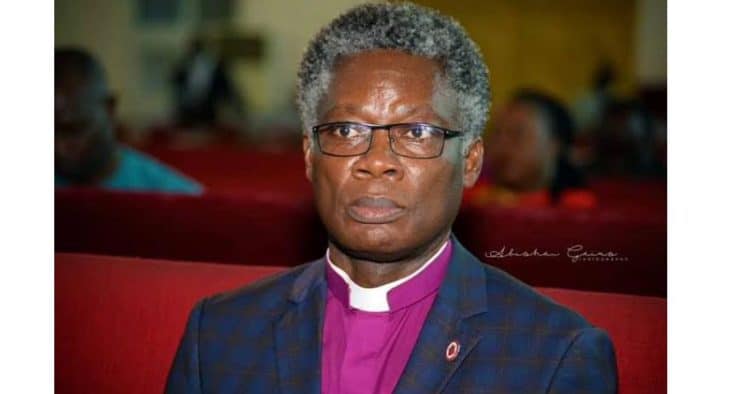IGNORANT DISCIPLES: WHY?
Sermon Preached At The Commissioning Service Of Church Of Nigeria Strategic Discipleship Movement, Bishop’s Cohort 1 Trainees On Thursday 12th October, 2023 At St. Peter’s Anglican Church Rumuepirikom Deanery, DNDN, Port Harcourt.
Text
Acts 19: 1-10
Prayers
We pray that you will give me utterance to proclaim your word in the power of the Holy Spirit. And we pray that the same Holy Spirit will open the hearts of my audience to receive your word and give them the grace to apply them through Jesus Christ our Lord. Amen.
Preamble
On Tuesday, we visited your camp and welcomed you in our capacity as the Archbishop of the Ecclesiastical Province of Niger Delta. Today, we are here representing the leader of our Church, the Most Rev. Dr. Henry Chukwudum Ndukuba, the Archbishop, Metropolitan and Primate of all Nigeria. He is supposed to be here in person to preside over the commissioning ceremony of the first set of Bishops and wives who have successfully gone through the training on Strategic Intentional Discipleship. But for obvious reasons he asked us to stand in for him. He sends his felicitations to you all for successfully completing the training programme and he appreciates the facilitators for their commitment to the mission of the church on Discipleship.
The purpose of Intentional Discipleship is to nurture the Believer in obedience-oriented Discipleship. It is a necessary tool for mission and evangelism in all our Dioceses. You have been trained, as Provincial Coordinators to organise the Provincial Discipleship Cohort and pass the strategy on like Paul told Timothy in 2 Timoth 2:2 “And the things that you have heard from me among many witnesses, commit these to faithful men who will be able to teach others also.” Congratulations again. We pray that indeed you raise disciples who will also disciple others. The coordinators of our Province are already doing something. I am aware that they have had one contact with Diocesan coordinators.
Why is intentional discipleship so necessary? It is necessary because there are disciples who are ignorant of the Holy Spirit and his operations in the body of Christ and the processes of Christian growth and maturity. They are still at the elementary level of our faith. This was why Hebrews said, “Therefore leaving the principles of the doctrine of Christ, let us go on to perfection; not laying again the foundation of repentance from dead works, and of faith toward God, of the doctrine of baptism and of laying on of hands, and of the resurrection of the dead and of eternal judgment” (Heb. 6:1-2). God expects disciples to grow and it is intentional discipleship that can make it happen. Our text in Acts chapter 19: 1-6 reveals this. The text reads:
And it came to pass that while Apollos was at Corinth, Paul having passed through the upper coasts came to Ephesus: and finding certain disciples,
He said unto them, have ye received the holy Ghost since ye believed? And they said unto him, we have not so much as heard whether there be any Holy Ghost.
And he said unto them, unto what then were ye baptized? And they said, unto John’s baptism.
Then said Paul, John verily baptised with the baptism of repentance, saying unto the people, that they should believe on him who should come after him, that is, on Christ Jesus.
When they heard this, they were baptised in the name of the Lord Jesus.
And when Paul had laid his hands upon them, the Holy Ghost came upon them; and they spoke with tongues and prophesized.
The Context
Upon arrival in Ephesus, Paul finds a group of disciples. Calling them disciples indicates that they are true and baptised Christians. They have been baptised into John’s baptism. They knew some basics of Christianity, but their knowledge about the Holy Spirit is defective. They must have known that a fuller experience of the Holy Spirit would come because John himself told them in Matt.3:11 that he was baptising them with water, but they will be later baptised with the Holy Spirit and fire. They were apparently unaware of the coming of the Holy Spirit (Acts 2:1-4). Why? Because their teachers were also unaware, if not they would have taught them. Paul remedies their ignorance.
Application
Today in the Church, there are so many ignorant disciples/Church members. We have disciples who have repented, received the born again, new life experience in Christ. They have been baptised and received as members of the body of Christ, the church. They may have been confirmed. But they are ignorant of so many things. They have a form of godliness but not the power (2 Tim 3:5). Why? They are not intentionally discipled. They needed further instruction on the message and ministry of Jesus Christ and how they will relate with Him. They believe and accept Jesus as Lord and personal saviour but they do not understand the significance of His death and resurrection or the work of the Holy Spirit. So, becoming a Christian does not end at turning away from sin (repentance) and turning to Christ (faith), it involves receiving the power to live a Christian life and serving the body of Christ which comes from the Holy Spirit. My emphasis here is that the believer needs to know some more things about his faith. If they are not taught they will not know. When Jesus called Peter and Andrew his brother, He said to them “follow me and I will make you…” (Matt. 4:19). To make here means, to disciple, mentor, train”. Jesus said to them I will disciple, mentor and train you to be disciples who will be knowledgeable enough to raise and disciple others.
Two important characters to learn from in intentional discipleship are Aquilla and Pricilla. These were servants of God who were knowledgeable of the Christian faith. Upon seeing the young Disciple full of zeal but only knowledgeable in the baptism of John, they took him to themselves and expounded the scriptures more clearly to him (Acts 18:24 -28). So intentional discipleship involves:
- Identifying disciples who should be trained: In the work of the ministry, there are those we inspire and there are those we train. To know the difference is a great achievement in intentional discipleship.
- Bringing them close to ourselves: We can only impact people much when we are close to them. That was what Aquilla and Pricilla did to Apollos. It is rare to influence people greatly from a distance.
- Drawing up a programme of discipleship: Disciples are not raised haphazardly. There must be a programme of action that serves as a guide in intentional discipleship
- Being committed to the programme of discipleship: Discipleship is a difficult task. But commitment and consistency would bring progress. Paul made progress in discipleship because, according to him, he did not cease day and night to instruct.
Charge/Conclusion
Dear Brothers and Sisters, our church leaders and members need to know more and better, they need to be built up, they need to be trained, mentored and discipled. They need to be rooted in Christ. That is why you have been trained and you have been discipled. Being part of this training is important but of more importance is the application of what you learned. The value, of learning or knowledge is in application. Hence, James 1:22 tell us Be ye doers and not hearers only. Jesus said Therefore whosoever hears these sayings and do them, will be like a wise man…. (Matt.7:24). All the knowledge in the world is worthless unless we practice it. Jesus said in John 13:17, Now that you know these things, you will be blessed if you do them. The blessing doesn’t come in knowing about strategic intentional discipleship. The blessing comes in discipling others. The Church of Nigeria (Anglican Communion) needs disciples who are knowledgeable not ignorant disciples. Therefore, we expect to see the impact of this exercise. Whatever you have learned or received or heard, put it into practice and the God of peace will be with you. (Phil.4:9).
Prayer
God make your servants instruments of intentional discipleship, through Jesus Christ our Lord. Amen.
Most Rev. Dr. Blessing C. Enyindah, DSSRS, JP, AP
12/10/23









